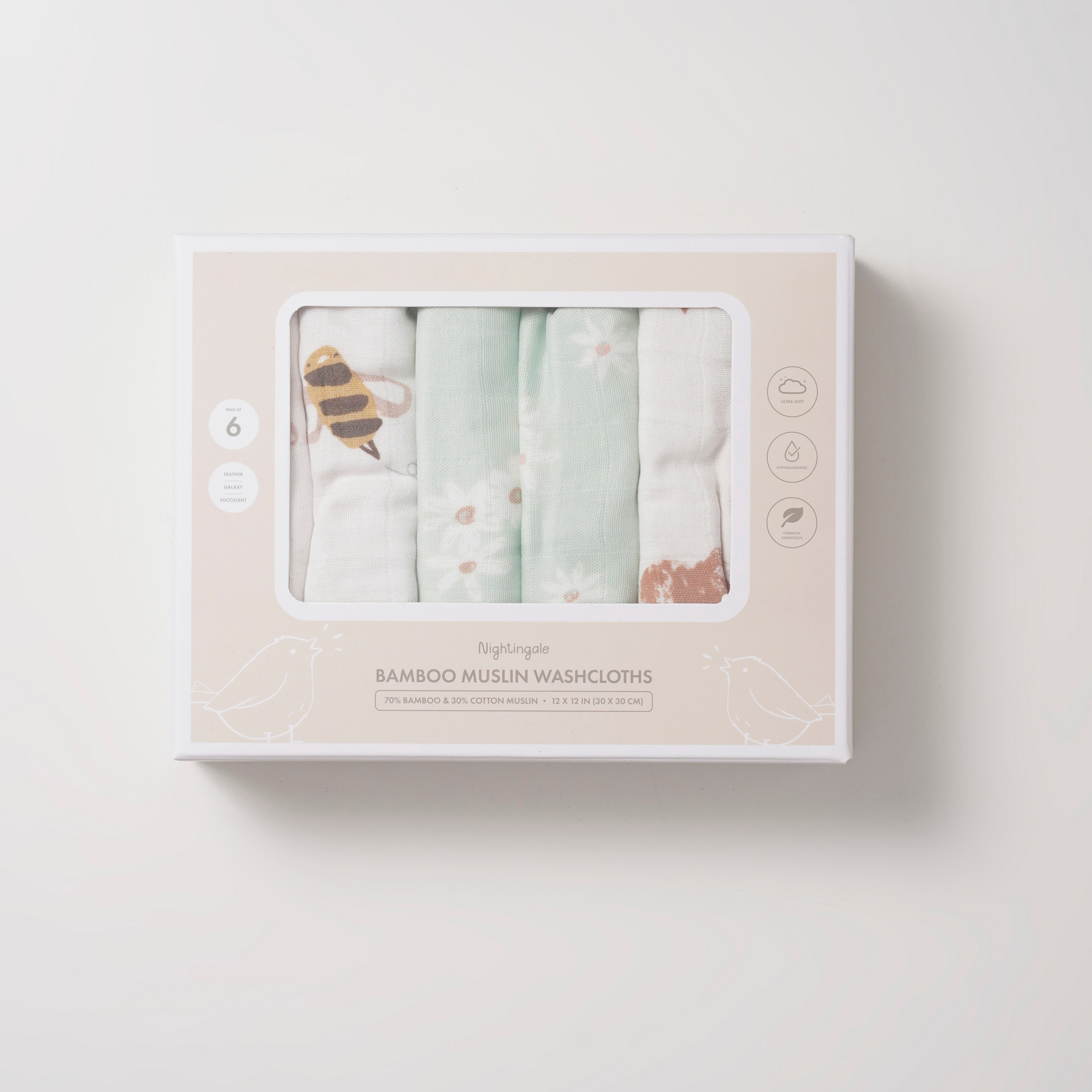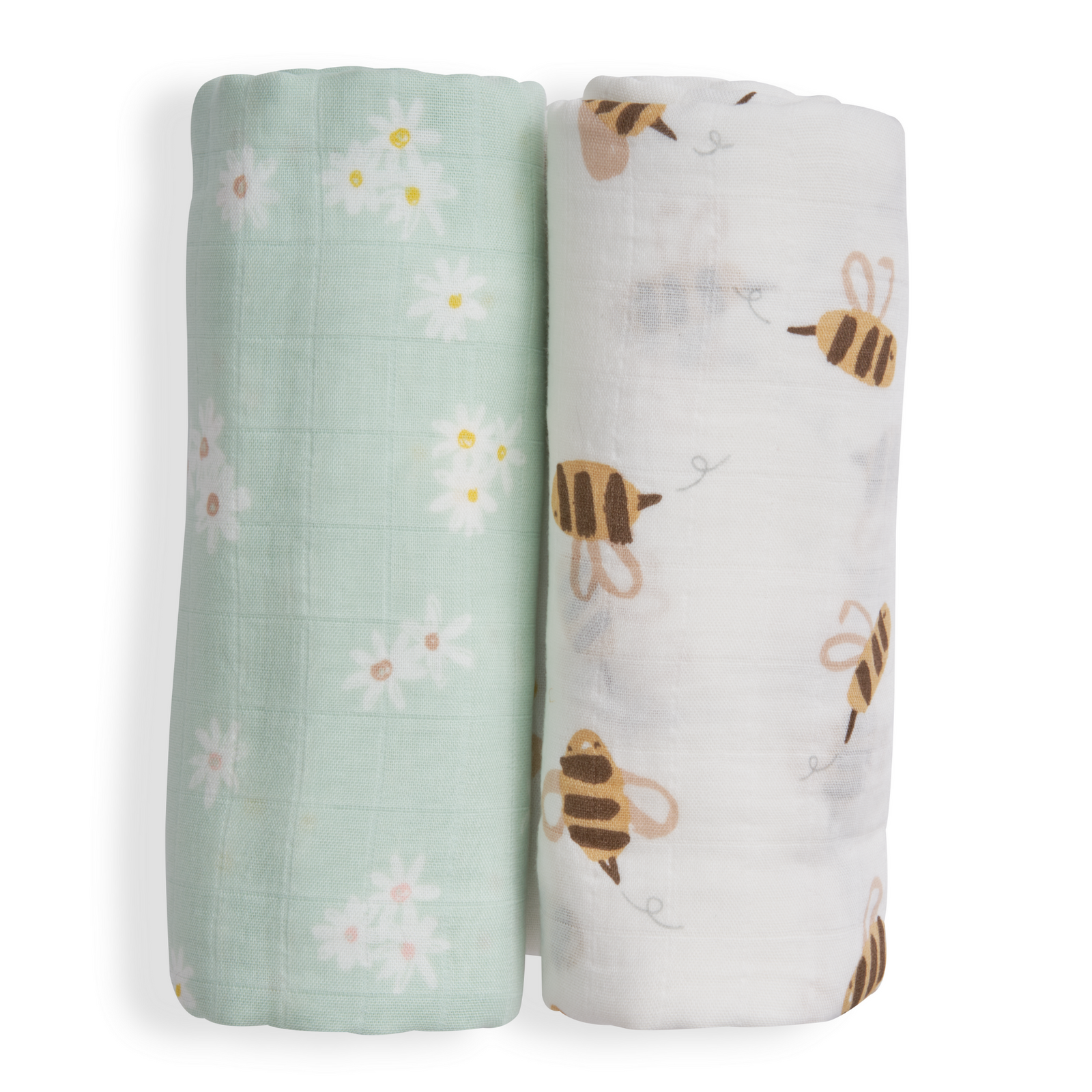There are few things in life as overwhelming as being a first-time mom. While meeting, holding, and loving on your sweet baby girl or boy is the experience of a lifetime, there’s another side to it that moms are just now starting to discuss openly.
Your body has just been through an intense and painful experience, and you’re still feeling the aftershocks of labor. You’re bleeding, sore, and exhausted, and while you recover, you have a new human to take care of. Luckily, we have some new mom tips for any parent entering this beautiful, messy, life-altering uncharted territory.

1. Get Help Where You Can
It’s advice that’s given more times than we can count: ask for help! Your postpartum body is recovering, and you must take care of yourself as well as your baby. Your mental and physical health is essential, too. If you are lucky enough to have people in your life that you trust and are willing to help, make sure to reach out.
Above all else, communicate with your partner, maybe in a more obvious way than seems necessary. Ask them to change and hold the baby while you eat lunch and shower, set up a night-feeding schedule, or put them in charge of feeding you.
You can also turn to experts such as:
- A lactation consultant
- A postpartum doula
- An in-home nurse or aide
Look into what your insurance covers in your last couple of months of pregnancy so that you can plan accordingly. We also know the harsh reality is that some first-time moms don’t have anyone that they can turn to, and that’s incredibly challenging. Online communities can help, but be careful to join one that’s actually supportive.

2. Newborn Care Tips: Health & Safety
Newborns can seem incredibly small and fragile, especially if you don’t have a lot of experience caring for an infant. Here are a few things to be aware of when bringing your tiny one home:
- Before you or anyone else hold your baby, wash your hands or use hand sanitizer. Babies cannot be vaccinated for COVID-19, so it’s a good idea to exercise caution around new people. If your partner or family member is coming for a visit after work or being in a public place, you may want to ask them to shower or put on a new shirt.
- Babies cannot hold their heads up for the first few months of life, so support their heads and neck every time you hold them.
- Do not shake your baby playfully or when frustrated. Shaking a baby can cause irreversible brain damage or death. If you feel the urge to shake your baby, leave them in a safe place like a crib or swing, and go into another room for a few minutes to cool down. If there’s anyone that can take over for a bit, call them.
- Make sure your car seat is installed correctly a few weeks before your due date. Here’s where you can go to have your car seat checked by a technician.
- Always make sure your child is properly fastened in their car seat or stroller. Babies are not ready for the stroller until they’re a bit older, which is why many strollers allow you to click your car seat onto the stroller safely.

3. Diaper-Changing Tips & Diaper-Changing Essentials
Your newborn will go through about 8-10 diapers a day, which means you may be changing around 70 diapers a week. To make this easier on you, set up a diaper-changing station in the nursery, living area, or both. Here are the diaper-changing essentials you will need (a lot of!):
- Cloth or disposable diapers
- Wipes
- Diaper cream
Not sure whether you’re going with cloth or disposable diapers? Check out this guide to help you make the best decision for your family.
Some babies are more prone to diaper rash than others. To prevent a rash, try to:
- Change them after every bowel movement and every couple of hours otherwise
- Use fragrance-free laundry detergent for cloth diapers, and be conscious of the ingredients in their disposable diapers
- Let your baby’s genital area air out when possible
- Clean the area with a wet washcloth and gentle soap before applying a thick layer of a doctor-recommended cream
- Call your pediatrician if the rash shows with no signs of improving after three days.
Other diaper-changing tips:
- Be prepared for baby boys to pee on you- it happens faster than you think!
- Wipe girls front to back to prevent urinary tract infections
- Don’t buy all newborn diapers- they grow faster than you think and may come out bigger than expected.
- Here’s an in-depth guide on newborn pee and poop

4. How to Soothe Your Baby
Unfortunately, babies cry during the newborn stage—a lot. You may feel like you’re failing if you can’t calm them down, but it’s not the case. Some things to try are:
- Wrap your baby snugly in a swaddling blanket. Some babies love the comfort of swaddling, and it protects them against their natural startle reflex, which often wakes them up. Swaddling also stops them from accidentally scratching themselves.
- Playing soft music or white noise can help create a calm environment for both of you.
- Avoid harsh lighting. Having night lights, soft lamps, and black-out curtains can be easier on a baby’s eyes.
- Give your baby a gentle infant massage to promote bonding and relaxation. Here’s a video on the best way to do this.
- You or your partner can try skin-to-skin contact with your baby. Skin-to-skin contact is incredibly beneficial for both baby and parents, for many reasons.
Check out our article on how to choose a swaddling blanket.

5. New Mom Tips For Bathing and Cleaning the Baby
Bathing your newborn for the first time can be overwhelming, from your still-sore body to the wet, wiggly, screaming newborn. Have a partner help out if possible. Luckily, your baby does not need a full bath until the umbilical cord falls off around two weeks. For a sponge bath, you will need:
- A sink or bowl of warm water with a few drops of non-toxic body wash
- Washcloth
- Hooded towel
When they’re ready for a full bath, you need:
- An infant tub
- Bath thermometer (if you have one)
- Washcloth
- Non-toxic body wash/shampoo
- Hooded towel
Tips for Bathing:
- Bathe them in a room that’s about 75° F.
- You only need two to three inches of water in the infant tub.
- Test the temperature of the water with a bath thermometer or your elbow. It should be around 100° F, which will feel neither too hot nor too cold to the touch.
Still have some questions? Click to read more on how to bathe your newborn for the first time.
6. Circumcision and Umbilical Cord Care
The umbilical cord typically falls off around two weeks. For umbilical cord care, let it fall off on its own, and consult your doctor if it stays on longer than three weeks, oozes pus, or are swollen and red. Do not submerge the umbilical cord in water.
The nurses in your hospital or maternity clinic will likely give you rubbing alcohol wipes to clean the area daily, although some doctors don’t believe it to be necessary. Ask yours what their preference is.
For circumcision care, clean the area with warm water and apply petroleum jelly during each change to ensure it does not stick to the diaper. Any redness or irritation should heal within a few days. Blisters or pus may be an indication of infection.

7. Newborn Baby Care: Feeding and Burping
While some moms know before giving birth, whether they want to formula feed or breastfeed, be prepared to be flexible, as hard as that may be. There are many reasons why breastfeeding doesn’t work out, and combo feeding and formula feeding will still result in a healthy, thriving baby. While many moms feel pressure to breastfeed from social media and medical professionals, remember that fed is best.
Breastfeeding for new moms can be incredibly challenging, but if it’s right for you, it can be rewarding and beautiful. If you know that it’s not suitable for you and your baby, you don’t need anyone’s permission to formula feed but your own.
Depending on your feeding plans, you may need:
- At least four bottles
- Bottlebrush
- Breast pump
- Breast pads
- Nipple cream
- Milk storage bags
- Formula
Feeding tips:
- Most newborns will feed on demand and at least every 2-3 hours. Your baby should nurse for about 10-15 minutes at each breast or take 2-3 ounces from a bottle.
- Some newborns have to be woken up to eat, while other newborns will want to nurse around the clock- both are normal!
- All formulas need to meet the same nutritional standards, and you may have to try a few to see what works best for your baby’s stomach.
- Breastfeeding for new moms can be scary because you don’t know how much they’re getting. If they have wet and dirty diapers, are gaining weight, and your breasts feel less full after they eat, then you’re on the right track.
Burping Tips:
- Newborns are often fussy due to trapped gas from swallowing while eating. Burp your baby before switching breasts or after every two ounces.
- Keep your baby upright when burping. Try holding your baby on your lap with your hand underneath their chin to support their head. You can also lay their head on your shoulder, patting their back with one hand and supporting their head with the other.
- Be patient. Sometimes it takes a while to get a good burp, but it’s worth the effort to avoid discomfort later.
- Check out our muslin burp cloths to keep the mess to a minimum.
8. What First-Time Moms Need to Know About Sleeping
Unfortunately, this has become an extremely controversial topic that can rile up the most supportive Facebook Mom group. And if you’re not sure what that is, don’t be afraid to try a few things out. Whether you plan to co-sleep, try sleep training, or fall somewhere in between, do what’s best for you and your baby, always. Some things to consider:
- Your sleeping set-up. Ensure you have a safe space for them, whether it’s a bassinet in your room, a crib in their room, or a co-sleeper.
- Scheduling. During the newborn stage, scheduling is likely not in the cards. Some babies will naturally fall into a somewhat predictable routine, while other babies will have you guessing and praying. You can establish a bedtime and nap routine and a loose schedule if that’s your style.
- Every newborn is different, but do not expect to sleep through the night any time soon. It is normal and healthy for them to wake up every 2-4 hours, and they may wake up more often than that. Newborns are not ready for sleep training.
- To prevent SIDS, have your baby sleep swaddled on their back in their crib or bassinet, keep the temperature between 68 °F and 72 °F, and do not keep any blankets, stuffed animals, or toys in the crib. Having a smoke-free home helps prevent SIDS as well. (1)

Wrapping Up: Handling Newborn Baby Care
Keep in mind that everyone’s entrance into motherhood is different, and that’s the beauty of it. Maybe you’re adopting, having twins, your baby is in the NICU, you can’t or don’t want to breastfeed, or you’re a single parent. Enjoy any tips that work for your particular experience, and leave the rest.
Ask for help when possible from a doula, friend, parent, or partner. Try to monitor yourself for PPD symptoms and communicate openly and honestly with your partner, so they can help identify PPD warning signs and help you seek treatment if needed.
It can also help prepare as much as possible, from hospital tours to baby supplies to reading up on what to expect. We have a comprehensive newborn checklist to get you started.








Go Baby Globe
September 01, 2023
This article provides invaluable guidance for first-time moms navigating the challenging yet rewarding journey of newborn care. From seeking help and maintaining health to essential tips on diaper-changing, soothing your baby, and ensuring safety, it offers a comprehensive resource. Remember, every mother’s experience is unique, so adapt the tips that work best for your situation, and don’t hesitate to reach out for support from your loved ones or online communities. Parenthood is a beautiful, messy adventure, and this article is a helpful roadmap for those first few weeks. 🍼💕 Robert from gobabyglobe.com